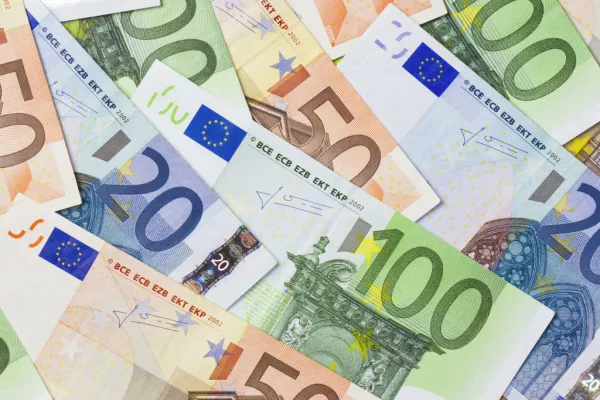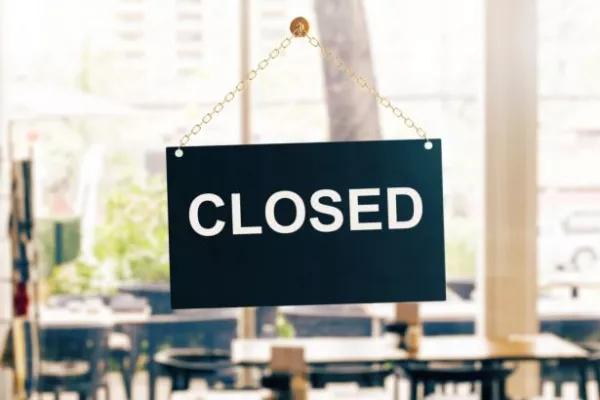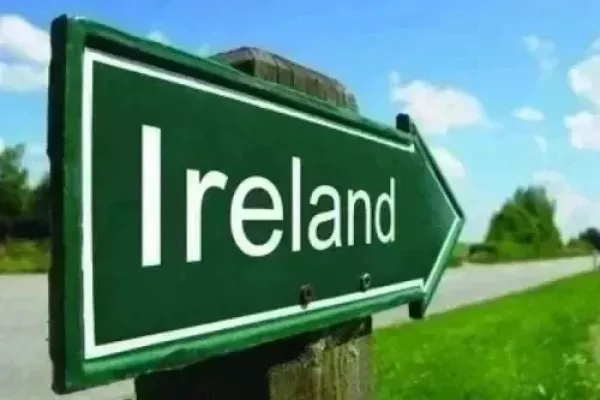The Minister for Finance Jack Chambers this afternoon revealed the Budget for 2025, with a focus on infrastructure, family supports and cost-of-living concerns.
Chambers announced that the Universal Social Charge (USC) will decrease from 4% to 3%.
From 1 January, the minimum wage will increase by 80c, to €13.50 per hour.
This, along with the USC change and an increase of the entry threshold to the new rate, where the entry point increased by €1,622, to €27,387, means that workers on minimum wage can expect an increase of about €1,424 in take-home pay annually.
For SMEs in Ireland, Chambers announced support for the sector, moving forward, with plans in place – but not currently implemented – towards a Stamp Duty exemption.
Chambers said, “To further support Irish business to grow and scale, in the coming year my department will, subject to state aid considerations, introduce a Stamp Duty exemption.
“This measure would enable Irish SMEs to access equity via financial trading platforms designed to support their funding needs.”
Food Drink Ireland welcomed news of support for SMEs, with director Paul Kelly noting the challenges facing the sector such as labour costs, tight margins and competition.
Kelly said, "With the introduction in 2024 of border controls to our largest export market Great Britain further adding to costs, it is essential that the scheme is up and running as soon as possible and that qualification criteria encourages rather than discourages access by SMEs."
The Budget also raised VAT registration thresholds that apply to the supply of goods and services – currently €80,000 and €40,000, respectively – to €85,000 and €42,500.
This aims to further support SMEs.
Drinks
Chambers also announced excise relief for cider producers.
The industry had recently called for a reduction in excise duties to ensure further growth and stability for the cider market.
Ireland has the fourth-highest cider excise rate in the European Union and the second highest across all drinks categories.
Chambers said, "I am extending the excise relief introduced last year for independent small producers of cider and perry to cover what is known as other fermented beverages which includes products such as mead and wines other than grape wine such as elderberry wine, strawberry wine etc.
"In addition, I am extending this relief to higher strength cider and perry produced by independent small producers."
‘A Disaster For Our Sector’
Organisations across the hospitality industry have been reacting to the budget. Although the government previously announced that it would not reduce the rate of VAT to 9%, many representative bodies still feel it has not offered sufficient support.
The Vintners’ Federation of Ireland (VFI) expressed “grave disappointment” and “frustration” with the budget and its lack of supports for the pub sector.
In a statement, the VFI said, ‘Despite calls for support from publicans across the country, today’s measures fall disastrously short of what is needed to protect a sector on the brink.’
The chief executive of VFI Pat Crotty said, “The Budget is a disaster for our sector.
“We have been clear with the Government about the immense pressure pubs are under, yet they have failed to deliver any meaningful support.
“Every minister and TD fully understands this Budget will lead to closures for a huge number of businesses across the county.”
Crotty once again called for a 9% VAT rate and a reduction in excise duty to protect the future of pubs across Ireland.
“The Government has missed a crucial opportunity to support Ireland’s pub industry, he concluded. “How many pubs will be forced to close before Government intervenes?”
‘Too Little, Too Late’
The Restaurant Association of Ireland (RAI) also criticised the government, calling the decision not to reduce VAT a ‘devastating blow’ to the industry.
The chief executive of RAI Adrian Cummins said, “This was the most important Budget for the hospitality sector since I first became CEO of the Restaurants Association in 2009.
“A pressurised domestic consumer, lagging tourist numbers and, above all, an out-of-control cost base mean optimism among my members has never been lower.
“The Government has offered no hope to these businesses for the future. It ignored their plea for a pro-SME approach and a viable trading environment through the reinstatement of the correct VAT rate.
“The piecemeal grant constructed by the Government at the 11th hour as an alternative to meaningful action will be totally inadequate to keep over 1,000 doors of restaurants, cafés and other food-led businesses open over the next year.
“We fully expect this new grant to be as ineffective as the failed Temporary Business Energy Support Scheme (TBESS) and Increased Cost of Business (ICOB) scheme.
“Even if it reaches those businesses in need, it will be too little, too late.”
Read More: Irish Tourism Sector At ‘Tipping Point’








